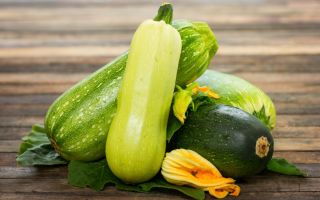Content
In this article, we will talk about zucchini. A vegetable so common in southern countries fell in love with people in northern latitudes. The food industry offers more and more new dishes from this product, up to squash jam, not to mention caviar. If you had to think about the question of whether zucchini causes allergies, then after consuming it in any form, your health has worsened. You can treat this product differently: love it or hate it. However, allergy sufferers should be especially careful. Although this product is considered harmless, since it is given even at the first feeding to babies, it is still not uncommon for adults and babies to be diagnosed with an allergy to zucchini.
Symptoms
Food allergy symptoms occur in both children and adults. The immune system overreacts to foods that your body is sensitive to. You can recognize an allergy to zucchini by the following signs:
- Skin itching.
- Various types of redness and rashes.
- The presence of dry skin.
- Swelling of the nasopharynx and signs of oral allergy (sneezing, lacrimation, sore throat).
Attention: Allergy to zucchini is caused by proteins also found in pumpkin, watermelon and cucumbers. Be careful when using these products.
Next, we will consider in detail how an allergy to zucchini in infants manifests itself.
Pediatricians and allergists advise starting complementary foods with zucchini. However, the immune system of some babies does not perceive this product. This leads to the following symptoms:
- the appearance of pimples, similar in appearance to a mosquito bite;
- swelling in the area of the buttocks, abdomen, chin, neck, forehead;
- peeling in place of red spots;
- swelling and itching.
Children's allergies are also distinguished by the presence of problems with digestion, bloating. Abundant regurgitation of food that contains the allergen may be noticed. So the body signals the rejection of the product. Such signs should not be left without close attention on your part. Keeping track of reactions to foods in a food diary is a great habit for both children and adults. This will help prevent food allergies.
Treatment of zucchini allergy in infants
If you carefully monitor what the baby eats and find out that the reason for the child’s poor health is in the zucchini, do not delay going to the pediatrician. Children's digestive, as well as immune systems, are very fragile and weak in the face of the onslaught of allergens.
Of course, the treatment should be prescribed by a doctor after an examination and a series of tests. It will look something like this: Enterosgel 2-3 times a day (for digestion), Fenistil drops (they can be taken from the first month of life, as the manufacturers assure), as well as external exposure to the skin with Elok ointment. Fenistil-gel also relieves allergy symptoms and successfully fights itching.
When you already know for sure the answer to the question of whether there is an allergy to zucchini, as well as some treatment regimens, one more question remains open: is it possible to have zucchini with allergies? It would seem that the answer is obvious. Eliminating the allergen from your list of allowed foods or from your child's diet is the first thing that comes to mind. But it is worth considering whether there is another way out of this situation? Modern research shows that allergy sufferers should not completely deprive themselves of one or another product. Indeed, in zucchini, for example, there are many macro- and microelements useful for the body. The solution to this problem can be the use of this product in small doses and the obligatory monitoring of the body's reaction after eating zucchini dishes.
A separate question for mothers who are just introducing complementary foods for a baby is what to choose: on canned food or on a natural product from the market. The allergenicity of a vegetable does not depend on the method of its processing. Both at home and in industrial production, it is not possible to make the product absolutely safe for an allergic person. The advantage of canned vegetable purees is that they are crushed as much as possible, which means they are prepared for the baby's esophagus. This is evidenced by the inscription on the bank: "homogenized puree." Often, manufacturers also write “hypoallergenic”, but no company will give you a 100% guarantee. Allergy is very individually manifested in each individual case.
The digestibility of zucchini by infants
In addition to allergies, which manifests itself externally in the form of a rash and redness , also pay attention to the digestibility of zucchini by the baby. To do this, see if there are any significant changes in the baby's stool. The appearance of mucus or clots, blood inclusions in the stool is a bad sign. Seek immediate medical attention. This, too, can be signs of a food allergy that occurs atypically without a rash, spots, or itching.
Let the phased complementary foods introduced by you be accepted with a bang by the baby. We hope this information was useful to you and helped answer your questions. We will be happy to discuss the rest of the questions that readers have in the comments. Write reviews and share your impressions, how did you introduce complementary foods and whether you suffered from an allergy to zucchini.






